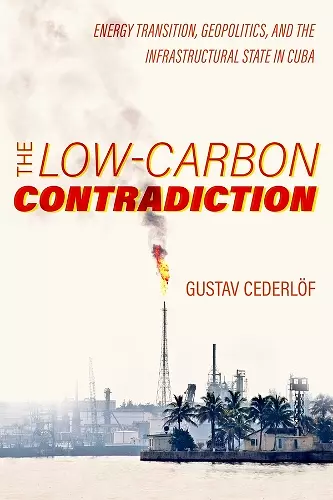The Low-Carbon Contradiction
Energy Transition, Geopolitics, and the Infrastructural State in Cuba
Format:Paperback
Publisher:University of California Press
Published:17th Oct '23
Should be back in stock very soon

In the pursuit of socialism, Cuba became Latin America’s most oil-dependent economy. When the Soviet Union collapsed, the country lost 86 percent of its crude oil supplies, resulting in a severe energy crisis. In the face of this shock, Cuba started to develop a low-carbon economy based on economic and social reform rather than high-tech innovation. The Low-Carbon Contradiction examines this period of rapid low-carbon energy transition, which many have described as a “Cuban miracle” or even a real-life case of successful “degrowth.” Working with original research from inside households, workplaces, universities, and government offices, Gustav Cederlöf retells the history of the Cuban Revolution as one of profound environmental and infrastructural change. In doing so, he opens up new questions about energy transitions, their politics, and the conditions of a socially just low-carbon future. The Cuban experience shows how a society can transform itself while rapidly cutting carbon emissions in the search for sustainability.
"Gustav Cederlöf’s book poses challenging questions about energy transition and energy justice from an often-overlooked Caribbean and socialist vantage point." * NACLA *
“Cederlof demonstrates how mainstream narratives of energy transition tend to overlook how one country situates itself in the international political economy.”
* International Affairs *
"Cederlöf ’s persuasive study of the Cuban example is not only valuable for those interested in Cuba but also a key contribution to the widening of the debate on energy transition and degrowth." * Technology and Culture *
"This book provides a fresh angle within Cuba studies, in which discussions about energy (almost exclusively oil) have been tangential to a focus on Cold War–style geopolitics. It also engages with debates around energy politics, development studies, degrowth, and eco-socialism." * Hispanic American Historical Review *
ISBN: 9780520393134
Dimensions: 229mm x 152mm x 20mm
Weight: 363g
260 pages